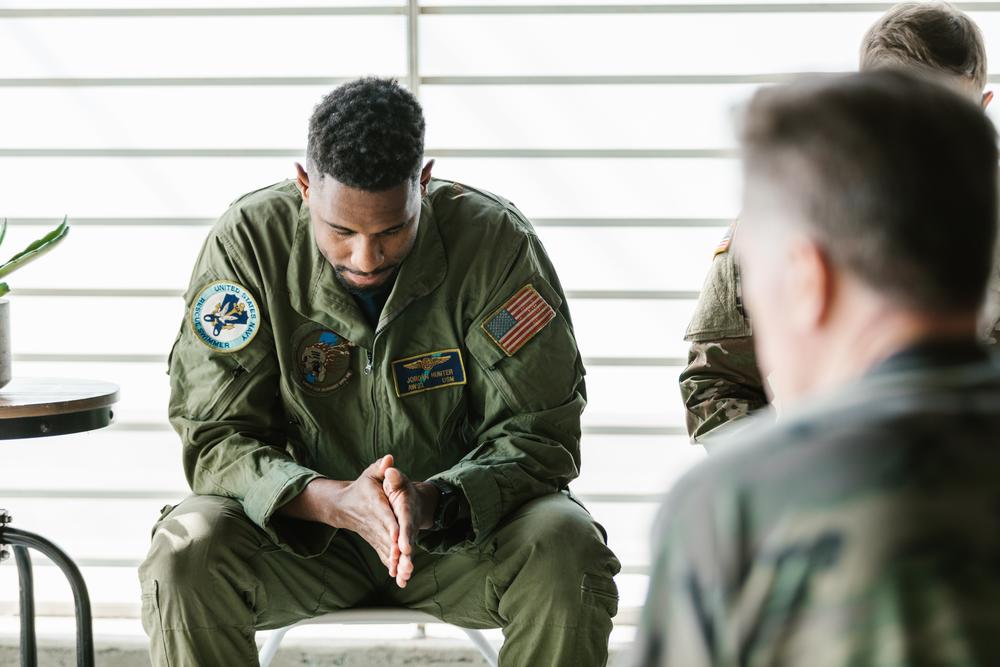
Caption
A recent study suggests the rate of suicide among veterans may be more than double what federal officials report annually because of undercounting related to drug overdose deaths and service record errors.
Credit: Pexels
LISTEN: In recent data from the U.S. Veterans Administration, Georgia bucks a national trend in suicide among former service members. But, as GPB’s Ellen Eldridge reports, another study questions the numbers.
If you or someone you know is having thoughts of suicide, contact the Veterans Crisis Line to receive free, confidential support and crisis intervention. It’s available 24 hours a day, 7 days a week, 365 days a year. Dial 988, then press 1; chat online at VeteransCrisisLine.net/Chat; or text 838255.

A recent study suggests the rate of suicide among veterans may be more than double what federal officials report annually because of undercounting related to drug overdose deaths and service record errors.
The U.S. Veterans Administration conducts the largest national analysis of veteran suicide rates each year, and data from 2020 shows Georgia’s rate of veteran suicide was significantly lower than the national rate.
But a study by the veteran advocacy group America’s Warrior Project suggests the VA's report undercounted those suicides in Georgia by about half.
Dr. Jim Lorraine is president of America’s Warrior Project, and an Air Force veteran who works in health care.
He said that undercounting related to drug overdose deaths and service record errors make up the gap.
The issue starts at the county level, he said.
"There was no objective way for a coroner, medical examiner or a funeral director to know whether someone served in the military or they didn’t," Lorraine said. "They, literally, most of the time, they would ask a family member or friends."
Coroners also have virtually no way of knowing whether a fatal drug overdose was an intended suicide, Lorraine said.
Kristen Mizzi Angelone, a senior manager for the Pew Charitable Trusts Suicide Risk Reduction Project, said, currently, hospitals nationwide must screen anyone in the emergency room with a mental health concern or a substance use disorder diagnosis.
But, she said, the risk of suicide extends beyond these populations.
"Right now, those are the only folks that have to be screened," she said. "And so what we're seeing is that, again, that misses a large number of people who otherwise may be at risk of suicide."
That includes the roughly 8% of Georgians who've served in the military.
Columbus-based veteran Sam Hargrove said intense anger led her to excessive drinking after she returned home from service.
Eventually, she seriously considered ending her life by crashing her car into a tree.
Thankfully, she didn’t, but it’s likely her cause of death would have been listed as accidental, Lorraine said.
Instead, Hargrove found help from the Wounded Warrior Project’s Warrior Care Network at Emory Healthcare.
"My PTSD comes from when I was in Iraq in 2003," Hargrove said. "There was an explosion, and I actually was diagnosed with my TBI (traumatic brain injury) while at Emory."
Hargrove said she credits access to follow-up care after an intensive inpatient treatment program for finally getting her back to feeling normal.
Lorraine said that tracks with surveys showing veterans consistently say they need three things: physical recreation, connection to other vets, and opportunities to volunteer.
"Those have been consistent for the last seven years," Lorraine said. "That's what it's been."
But now there's an additional request from veterans.
"This is the first year that the fourth one has been access to mental health," Lorraine said. "And I think that's telling."